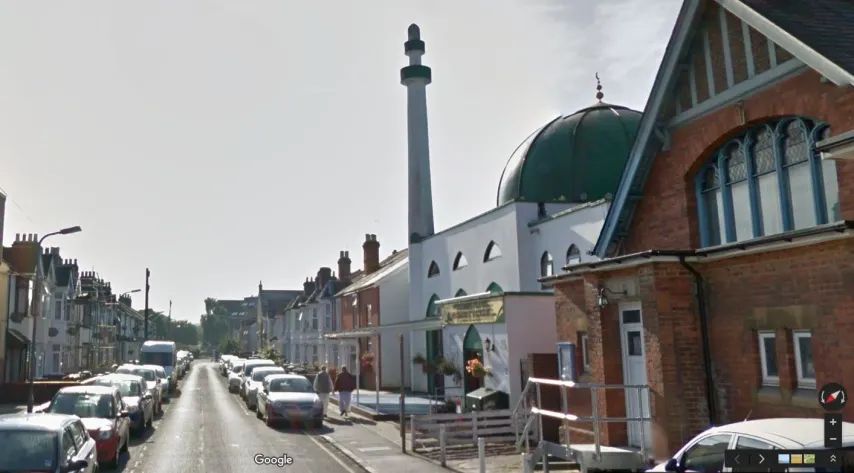
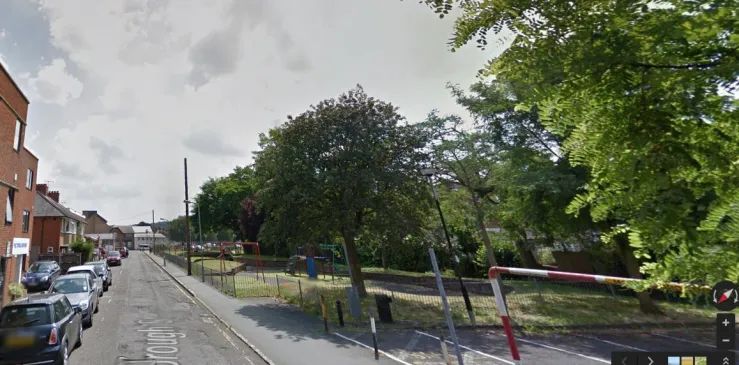
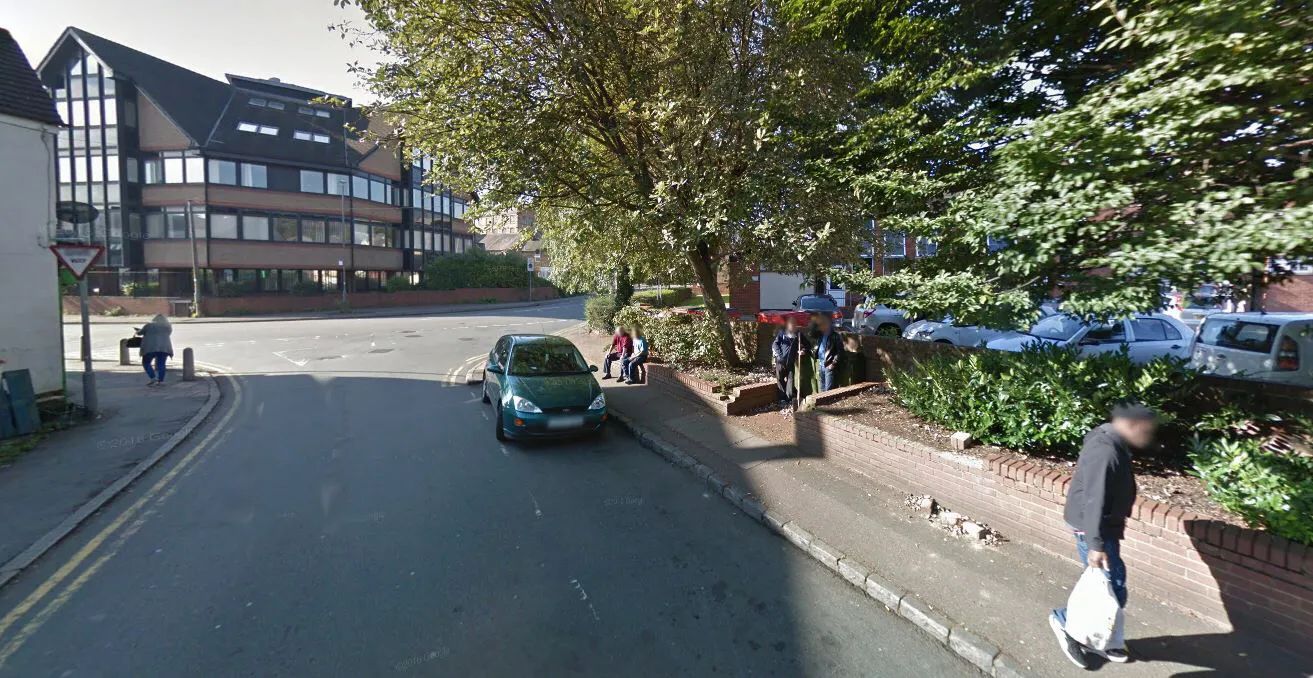
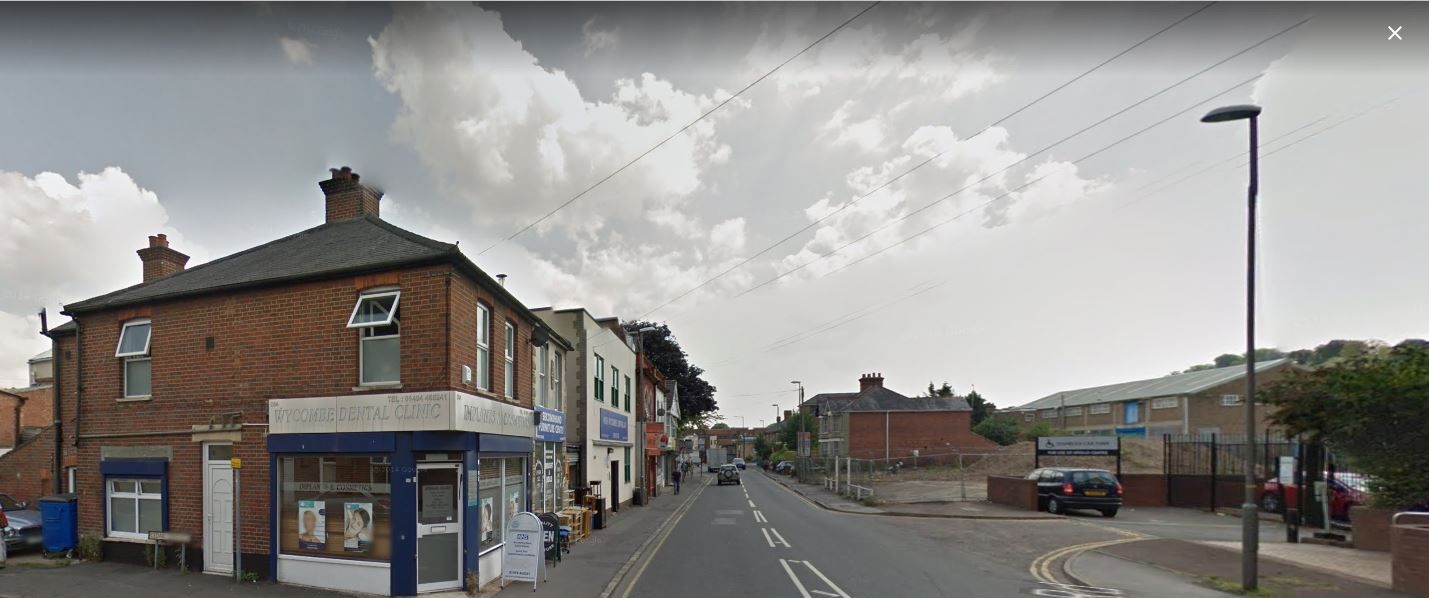
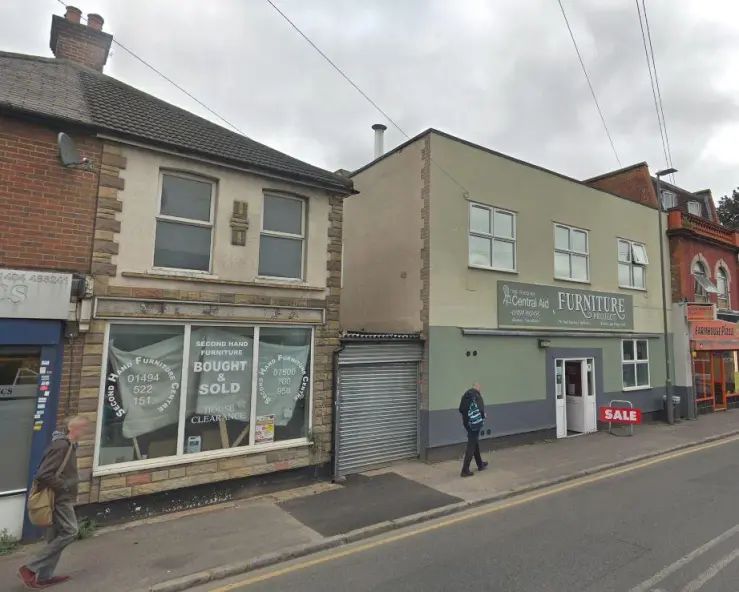
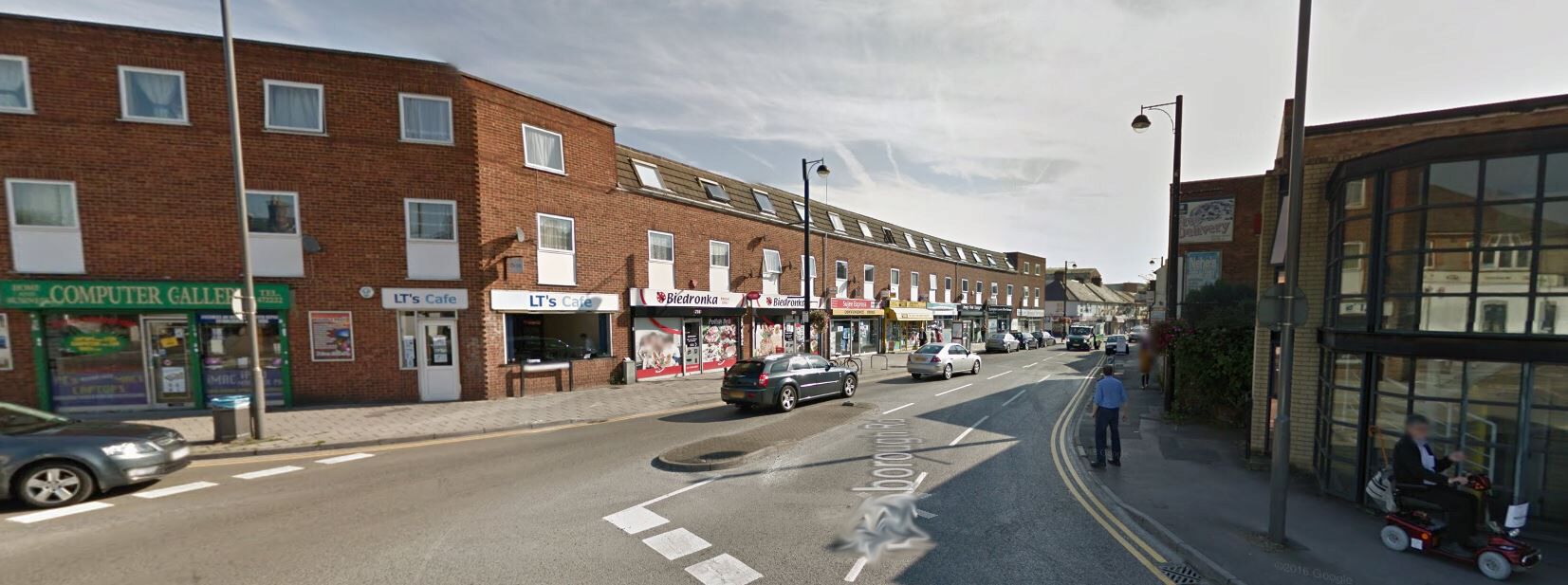


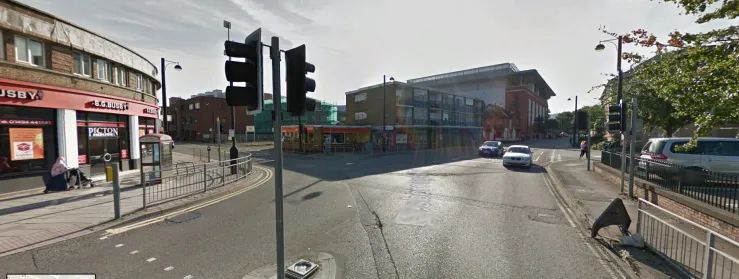
After the questionnaire, and further Skype-messaging with the lad (a good way to preserve the minutes of our meetings), it was time to meet Karleen for lunch in the pub. As usual on a Friday, I took along the 2-wheel trolley (“cart” in American). Karleen had already paid for our breadfruit, mangoes, yams & plantains at the West Indian market stall, leaving them there for us to take home later. This time we were also to meet up at Marks & Spencer with a dear friend who’s been seriously unwell for a while. She continues to battle on, defying every difficult circumstance.
They used to meet sometimes outside M&S when they were both working in town. Surely nothing could go wrong, especially as these days we all carry mobile ’phones. We got there at the agreed time. Karleen kept an eye in the direction of the bus station, I staked out the route to the car park, & looked around generally. She ruled out calling her at this stage. We should give her some slack, let her arrive at her own pace. At one point I did see an odd-looking woman in the distance, going here and there impatiently, but she didn’t look like our friend at all. I went closer until I was in her line of sight and waved. No acknowledgement, no slackening of pace. One doesn’t want to stalk a stranger. I saw her again fifteen minutes later, called Karleen over to look and she instantly recognized her, poor thing. To me she didn’t look like herself at all. It turns out she’d arrived on foot from the other side of town; it hurts her to stand so she had to keep moving while waiting for us; her eyes aren’t effective any more except at close range. She’d arrived five minutes before the agreed time, looking out for us from the direction of the market. Reunited, we went up to the M&S café, she for some organic green tea which was the only thing they had that she’s allowed. So we talked; she brightened up. There was much to share, much sympathy, encouragement and women’s talk.
So I said we should drive her back, I’ll go and find the car. They can stay and talk in the warm till I’m back. First I had to collect the trolley and paid-for items from the market stall, along with another bag of shopping K had parked there. Just in time, the stall was being dismantled. They’re very nice people, we have a standing arrangement in case we come too late. I went home, dropped the things inside.
Only now did I have a hand free to dictate the thoughts which had floated into my head on the walk home. It was Friday prayers at the crowded mosque, which always means that every possible parking space is taken up, legal or not, sometimes all over the sidewalk and road junctions. This is one reason why I park up to half a mile away and often forget where. It gave a little time to tell some of these thoughts to the voice recorder.
On the drive back to the café, traffic was so heavy that I had time to dictate the rest while we were not moving. There are laws against use of hand-held ’phone while driving, which I don’t imagine apply to digital voice recorders, but one doesn’t want to be falsely accused by members of the public inflamed with righteous indignation. Not that you see those types on the cosmopolitan Ledborough Road, whose motto must surely be “live and let live”, “anything goes”, or in the words of the WWII song, “Bless ’em all!” Listen to Vera Lynn’s version here. Wonderfully, she is still with us, I heard her on the radio not so long ago.
So these were the words I strove to capture:
I think I shall always have something to say, although it’s probably the same thing. Every day, different words, better ones I hope. The essence of it all is that I’m held together by blessings, and I see the same with most everyone around. And I perceive that this is the right place [geographically] to be, for it’s populated with those who know they are wholly dependent on blessings and those who don’t know this yet, but feel an aching gap where blessings ought to be; would be, if they could only connect. There’s a third kind of person, I don’t see them much round here: those who think that they are held together by their own efforts, virtues and capability.
Blessings come in so many forms I couldn’t count them, not now. But counting them might be a good start. I spent most of my life not understanding the need to open a door to blessings. One doesn’t get to see them through philosophy, nor—properly understood—do they give rise to any philosophy, or religion. All that stuff is man-made. And once these blessings are understood, I don’t think they can ever come to an end. It’s as though you have found the source. Why would you ever leave it? As if you could. The sluice is opened. It flows.
We are always circling round the rim of a void. The fact of life is death. When I accept and embrace that this is what life does, and the “I” will have to say goodbye, I am forever safe.
And I think I’ve understood what is meant by “eternal life.”
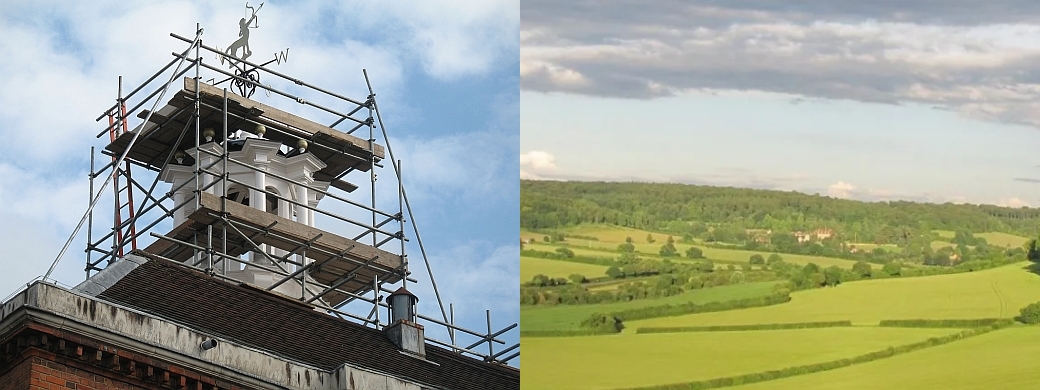

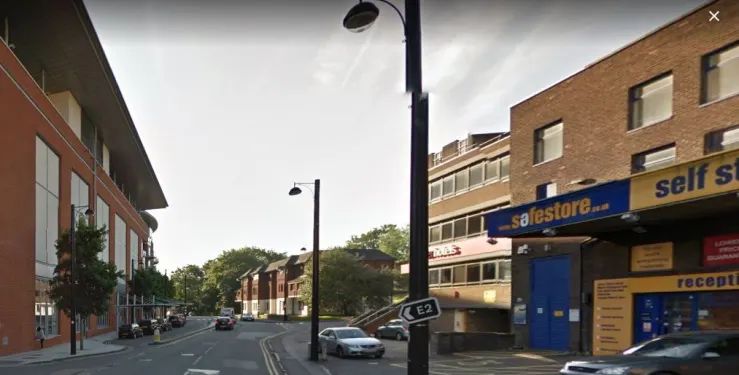
Once years ago when we were visiting the Great Smoky Mountains National Park, we discovered that park service folks has constructed a tub mill near a cabin in a cove surrounded by steep slopes. The settlers in what became the park had scratched out meager livings along the creeks traversing the rugged and rocky terrain. Corn had been one of the crops they were able to grow. Although a portion of the harvest went to producing ‘white lightning’ there was a need for meal to feed the ‘young’uns’. The park service had reconstructed a simple mill to replicate one an ingenious farmer had built from the supplies at hand so that he could avoid transporting his corn to be ground at a larger commercial mill with a waterwheel.
Later park visitors would be prevented form operating the mill but we were lucky enough to find it unsecured but not in operation. The challenge was to figure out how it worked and set the water from the nearby creek running through the sluice and turning the millstone. Although we properly directed the water, the stone, of course, remained immobile until we gave it a push to overcome inertia.
We didn’t grind any meal that day but I learned first hand the power of water to move stone, and the need to give the reluctant stone a push so that the water could do it’s work.
LikeLike
I’m glad that you took this word “sluice” and turned it into a concrete image with anecdote attached. You’ve shown it to be more than a metaphor, it’s a valid analogy down to the details, including the overcoming of inertia, a word which first entered the English language via Isaac Newton’s Philosophiæ Naturalis Principia Mathematica
LikeLike
This deserves better than I can give it. Heartbreaking & hopeful. Makes me want to live and let live while I still can.
Much Strength & Blessings to You, your beloved and your dear brave friend!
LikeLike
It deserves better wording too, I just corrected it a little. Yes, she is certainly brave & we want to be available to her at any time.
LikeLike
I think about this idea of yours sometimes, about the “I” and death, the idea, I suppose, that life goes on even if it isn’t MY life. I try to find some comfort in it, but I don’t think I’m there yet.
Death is just something we try to come to terms with, and people try to come to terms with it in different ways. And of course, death is going to happen to us whether we find some way of coping with it or not. It doesn’t care. It won’t wait for us. I think mostly what you’ve found is something that helps you personally comes to terms with it, something that softens the blow for you. For me or someone else, we might have to find a different angle to make it feel more acceptable. Maybe it’s just a personal thing that varies.
The funny thing is, we tend to think of death as something that we’ll have to experience eventually, like a trip to the dentist. But really, almost by definition, all that we’ll ever really experience is life. All that we’ll ever really experience of death is that ongoing attempt to cope with the idea and understand it and accept it that we struggle with throughout our lives.
And that brief or prolonged period of agony right at the end. Mileage may vary in that regard.
LikeLike
Yes, you’re quite right, it’s just my way of seeing death, not a way that I’ve consciously sought, it just came, gradually. As for the idea of preaching any doctrine, as if I have the “right angle” on anything at all, I recoil from it like a scalded or scandalized cat. These days at any rate. Of course I have beliefs, but one of them is that people are very different, and have to find their own path. And after reading the book on “Theology of the Body”, I recoil completely from the Catholic notion that we should all toe the same line and live in the blessing of a holy church. Not a fresh discovery of course, but an exploration to discover exactly where I part company with them. Which is a fundamental point, that they think there’s a knowable way for everyone, & that they hold the famous keys
LikeLike
Absolutely. Couldn’t agree more!
LikeLike
I remembered years ago, I saw this documentary about Ayn Rand, and there was a clip of her being interviewed on Donahue. She was very old. And Donahue was asking her that pointless question that people always ask atheists: “Doesn’t it bother you blah blah blah?” and she said that it didn’t bother her because to her, when she dies, the world would just end. It was a shame that the world had to end, but that’s how it was. Something pretty much to that effect.
And I felt like that was a horrible way of looking it — in many respects it’s the opposite of your idea — and I also found it strangely at odds with the whole idea of objective reality that she had always stood for. But at the same time, it was like … whatever. If that’s how she had to frame it in her mind, if that’s how she had to explain it to herself to make the pill go down a little smoother, then so be it.
As they say, it’s the “great equalizer”, so who is really in a position to be an authority on the “right way” of dealing with it?
LikeLike
Right, and when I wrote the post, at the end I thought of mentioning Etty Hillesum, whose vast diaries I peruse on an exhausted day like today, when I went back to bed after breakfast & listened to Bach cantatas. She knew all along about Auschwitz, I think, and ended up there, though her friends could have pulled strings and got her spared. She made sure to go in a different cattle-truck to other family members—that would be too upsetting—and got everyone in her truck to sing along joyfully. This we know from a postcard she wrote on the journey & threw out of the window, which was picked up and posted by a farmer some time later. If I ever get to the end of her diaries, I may understand something of how she reached that point. But it won’t mean I could ever be like her, any more than my appreciation for Bach cantatas could ever translate into understanding how he produced them—this duet for example.
LikeLike